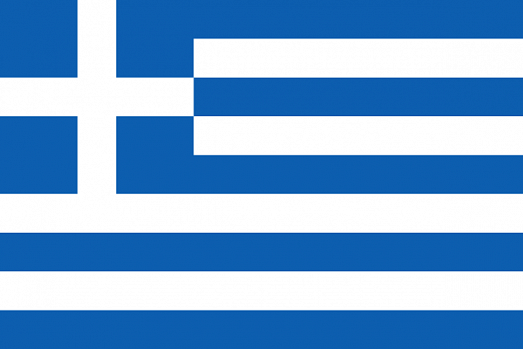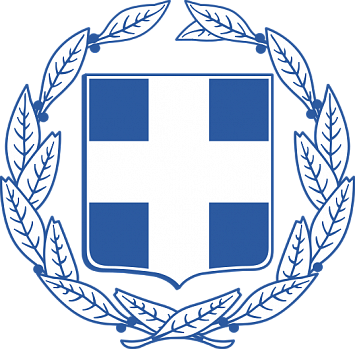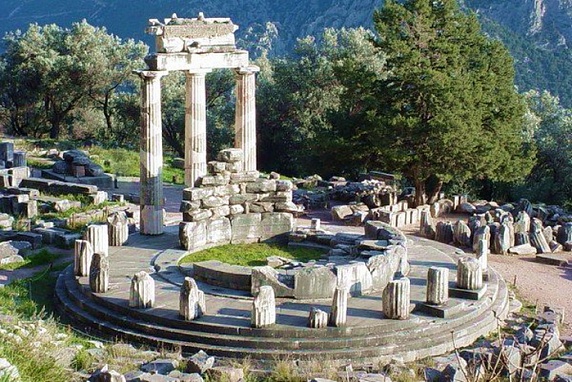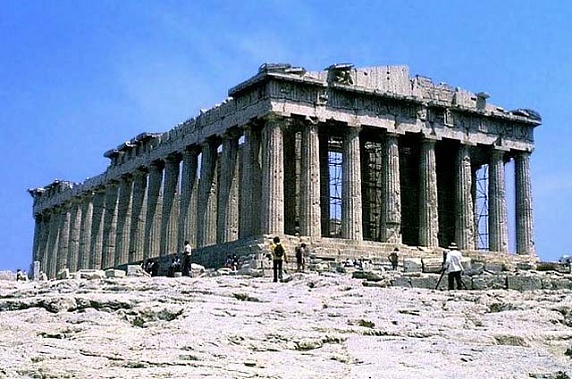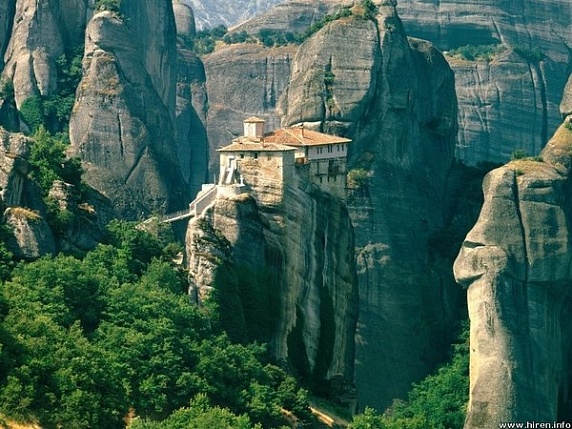 the Hellenic Republic
the Hellenic Republic
Speech by Russian Foreign Minister Sergey Lavrov before Greek Public, Athens, December 2, 2009
Situation in the Euro-Atlantic Area and Russian-Greek Relations
Ladies and gentlemen, friends,
I think there are few countries in the world that are bound by such a long history of sincere friendship as Russia and Greece. Russian-Greek relations have always rested on the solid basis of trust and mutual sympathy between our peoples. They continue to confidently develop today, acquire new meaning and are distinguished by a high level of mutual understanding in the most diverse fields.
Turning to the past, it can be said without exaggeration that these feelings of friendship and mutual respect are inherent in our peoples almost at the genetic level. I am confident that we can hardly be made to abandon this proven commonality of historical destinies and values, which is manifested in the harmony of interests between our countries today as well.
Orthodoxy came to Rus from Byzantium, and along with it – many cultural and civilizational features that influenced the formation of our national distinctiveness, including polity, philosophy, painting, and the principles of urban planning.
Russia gave as good as she got. Many Greeks found their second homeland in our country and were employed in Russian government service. The most vivid example is the destiny of Ioannis Capodistrias, the first ruler of the independent Greek state, who for several years actually directed the activities of the Russian foreign ministry, occupying the key post of Secretary of State for Foreign Affairs.
Russian diplomacy vigorously helped the preparation and adoption of the Constitution of the Republic of the Seven Islands, a prototype of the Greek nation-state. Later, our country backed the Greeks as they launched a national liberation struggle to regain state independence.
The victory in the Battle of Navarino, won by Russia's Mediterranean fleet, helped create the conditions for starting negotiations on the granting of independence to the Greek people. The establishment in 1828 of diplomatic relations between Russia and the Greek state was yet another confirmation of mutual respect and the desire to develop cooperation between the two countries and peoples.
Since then, for the past 180 years, Russia and Greece have never been at odds. During the two world wars we were allies, jointly contributed to the common Victory over fascism, the 65th anniversary of which the whole world will celebrate in May next year. The Greek people with arms in their hands, at great sacrifice resisted the Nazi war machine. We know how carefully people in Greece cherish the memory of the heroic war generation, who fought for the values of civilization, to defend their families and peoples, the right to sovereign development and life itself.
Nowadays, it is sometimes forgotten how many opportunities were missed to organize a collective rebuff to the plans to establish Nazi hegemony in Europe. To many it seemed preferable to try and direct German aggression eastwards. Today, some figures openly declare that the collaborationists, in fact accomplices of the Nazi crimes, "had the right to fight for independence" in Nazi uniform. All this must be borne in mind when we hear the false thesis about the equal responsibility of Hitler's Germany and the Soviet Union for the slide of our continent into the abyss of war. It is cynical to draw a parallel between those who sought to destroy entire nations and the liberators of Europe from the Brown Plague.
Russia is for an honest attitude towards history. The 20th century left deep wounds in the memory of the peoples of Europe and the world. Revolutions, coups, two world wars, Nazi occupation, the tragedy of the Holocaust, and the era of totalitarian regimes, which unceremoniously dealt with civil rights and political freedoms and sought to impose a uniform like-mindedness obligatory for all. But no one could rob people of their inner freedom, which became the main driving force for change in the Soviet Union and Europe as a whole. Unfortunately, post-war development went along the path of the breakdown of the Anti-Hitler Coalition, along the path of the Cold War, the geopolitical imperatives of which created a divided Europe.
The tragic events of the 30s and 40s of the last century contain important lessons for all. Appeasing the aggressor, the scourge of nationalism, the ideas of the possibility for some peoples to thrive by enslaving others and that someone has more rights to "lebensraum," sooner or later turn against their authors, and resisting the great evil requires timely collective action.
But there is another lesson from the troubled history of Europe. The whole experience of the interwar period – from the Versailles Peace Treaty to the Second World War – convincingly demonstrates that it is impossible to establish an effective system of collective security in the Euro-Atlantic region without the participation of Russia, the European countries and the United States. This approach is particularly relevant today, when our country is firmly on the path of democratic development and pragmatic, de-ideologized foreign policy. The world is changing fast before our eyes, and in these circumstances, the imperative is the harmonization of international relations, the mutual convergence and interpenetration of cultures and economies.
A desire for the formation of a system of indivisible security in the Euro-Atlantic space lies at the heart of the initiative put forward by President Dmitry Medvedev to conclude a legally binding Treaty on European Security. Its essence is to turn into a legal obligation the political accords endorsed earlier in the OSCE and the Russia-NATO Council that no country should reinforce its security at others' expense. Had we done that before – then, perhaps, neither last year's Caucasus crisis nor support for the unilaterally declared independence of Kosovo would have occurred.
Russia does not propose that the existing European structures and institutions, whether NATO, OSCE or others, should be destroyed. We invite not only the Euro-Atlantic region states to become parties to the Treaty but also the organizations themselves, including NATO, OSCE, EU, CIS, and CSTO, i.e., all those structures that operate in the Euro-Atlantic area in the realm of politico-military or, as they also say, hard security.
It is about creating a unified legal field of security in the Euro-Atlantic region. Reliable and equal security guarantees for all countries irrespective of whether they belong to military alliances would provide a common coordinate system, mandatory for both the states and the international organizations operating here.
A few days ago we circulated a Draft European Security Treaty for study by all interested parties. Russian President Medvedev sent it along with his verbal message to all the leaders of the states of the Euro-Atlantic region and to all the executive heads of the organizations I have enumerated. We look forward to a constructive and concrete response on the merits of our initiative. It is wrong when political declarations adopted at the highest level are not translated into practical action. And it can be done by turning these declarations into legal obligations.
Equally obvious today is the importance of devising clear rules for the prevention and peaceful settlement of conflicts on the basis of reaching agreements between the parties, without unilateral decisions and with respect for the agreed negotiation and peacekeeping formats. Settlement should be carried out in stages – obligations not to use force, confidence-building measures, fostering a dialogue between the parties. The experience of the conflicts in the Balkans and Transcaucasia has clearly shown where violations of those principles and the application of double standards lead to. It ought to begin with the nonuse of force. For the last three years, long before President Saakashvili gave the order to kill South Ossetians, whom he regarded as his citizens, within the framework of the mechanisms that were agreed between the Georgians, and South Ossetians and the Abkhaz and which were endorsed by the UN and the OSCE, we proposed that the parties in conflict should conclude an agreement on nonuse of force. Tbilisi refused to do so, and now we understand why. Apparently, the plans to use force did exist. It makes us very worried and sad. Now we are confident that the discussions that began and continue in Geneva in accordance with the Medvedev-Sarkozy plan and which are devoted to stability in the Caucasus and to ensuring the lawful rights of refugees and displaced persons must necessarily help to develop agreements on nonuse of force. This is the first step towards establishing confidence and stabilizing the situation. I hope that it will be taken.
Overcoming the still palpable inertia of the schism that occurred during the Cold War – in its military, political, ideological and other dimensions – must be the result of a joint reflection on the new realities of a globalizing world. Unless we rebuild Euro-Atlantic politics on collective and legal principles, unless we step over the confrontational approaches of the past epoch – which, by the way, drag in their wake the logic of "endless" waves of NATO enlargement – we will not rise to the level necessary for solving the real common problems we face, ranging from terrorism and organized crime to energy security and climate change.
That many in Europe are beginning to think seriously about this is shown by the useful discussions that took place during the just concluded meeting of the OSCE Ministerial Council in Athens.
We support the unfolding exchange of views within the Corfu Process, initiated by the Greek Presidency of the OSCE. We consider that the enhancement provided by this process of the effectiveness of the OSCE in the context of a comprehensive approach is long overdue. To this end, Russia proposes acceleration of the adoption of a Charter of the OSCE and of clear rules for its activity in all areas in accordance with the principles of the Helsinki Final Act.
Both in European and world affairs, it is a time to "gather stones." With the advent of the administration of Barack Obama the possibilities have opened up to correct Russian-American relations on the principles of equality and the consideration of the interests of each other, and these possibilities are already being implemented on the basis of the agreements between the Presidents of Russia and the United States. In Geneva, work is under way on a new draft treaty on strategic offensive arms. Unprecedented steps to reduce further the level of nuclear potentials will be provided by it. I am convinced that this will benefit both Russian-US relations and global strategic stability. The accords between the Presidents of Russia and the United States on other issues, including trade, economic, cultural and other cooperation, are also being implemented in practice. There was created the Presidential Commission on Russian-US relations. It has more than a dozen working groups, and all of them have already held their meetings or will hold them before the end of the year. And then Hillary Clinton and I as coordinators of this Commission will report to the Presidents on the fulfillment of their instructions and ask for new instructions regarding further work.
We are also ready for constructive cooperation within the Russia-NATO Council, whose work had been frozen not at our initiative. I think it was wrong for them to do so. The RNC was founded precisely for the purpose of dealing with complicated problems. If it worked only in cloudless weather, the value of such a mechanism would be hardly significant. Our partners have revised their decision to freeze Russia-NATO relations. An informal ministerial meeting has already taken place in Corfu. It was useful. On December 4 in Brussels we will hold a formal meeting of the Russia-NATO Council after a rather long pause. Toward the meeting a package of documents is being prepared for our further joint work on those principles that we want to advance in the RNC. I believe that we have every chance of creating conditions to ensure that relations between Russia and NATO reach a qualitatively new mutually advantageous and equitable level to more effectively contribute to solving the problems of Euro-Atlantic security. Because without such players in this space, as NATO and Russia, it is hardly possible to seriously discuss any ideas relating to military-political security in our continent.
One of the pillars of a new Europe without dividing lines is to be our strategic partnership with the EU. We are committed to the all-round development of ties in all areas, taking into account the role of Russia and the EU as the major geopolitical entities on the European continent. In the long term the significance of our interaction will only increase, as the productive outcome of the Russia-EU summit in Stockholm confirms.
We are grateful to the Greek friends for the effective support for closer integration between Russia and the European Union. It is appropriate to recall in this context that the current Russia-EU Partnership and Cooperation Agreement was signed on the island of Corfu precisely during the Greek EU Presidency in 1994. Apparently, Corfu is an area of positive energy, where you can agree on a whole array of different issues. The existing agreement over the past 15 years has, of course, fallen a bit behind the times. Our partnership has become much deeper. We are now working on a new agreement between Russia and the EU on strategic partnership that will fix a new quality of interaction with the EU, including with regard for the changes that have taken place within the European Union following the entry into force of the Treaty of Lisbon.
One important component of the Russian-Greek partnership is the identity or similarity of views on key issues of our time. We are unanimous in recognizing the need for strict observance of the universal norms and principles of international law, in comprehending objective processes in the formation of a polycentric world order and in rejecting unilateral, and even more so – force-based methods for settling regional conflicts.
We are actively cooperating in the UN, Council of Europe, OSCE, within the framework of the Organization of the Black Sea Economic Cooperation and other international forums. The scope of our cooperation is constantly expanding and covers many issues, including those relating to security and the fight against international terrorism. We are interested in strengthening the coordination of our steps.
An example of constructive political cooperation between Russia and Greece is the Cyprus settlement process. Our countries strongly advocate that all the efforts being made to reach an agreement should be based on international law and on the relevant resolutions of the UN Security Council. The international community, particularly as represented by the mission of good offices of the UN Secretary General, should help to organize work and encourage movement of the parties towards reconciliation, but in no circumstances impose any invented solutions or set artificial deadlines for reaching agreement. We welcome the process that is now developing in the framework of contacts between Cyprus President Dimitris Christofias and Turkish Cypriot leader Mehmet Ali Talat. They work with each other on the principle of "do no harm" and deal with specific, if not major, problems and this helps strengthen confidence. That's the only way to move towards agreement.
Our two countries are engaged in an active political dialogue. Talks at the level of Heads of State and Government set the rhythm of our bilateral cooperation, determine priorities for the application of common efforts.
The implementation of joint strategic projects, primarily in the energy field, imparts stability and a long-term perspective to relations in the economic sphere.
Events of recent years confirm the correctness of the strategic choice in favor of the South Stream project. Our joint work on its expeditious realization will help diversify Russian energy supply routes to Western Europe, including Greece, and avoid situations in which consuming countries become hostage to the domestic political situation in transit countries. Russia makes a weighty contribution to the development of the gas infrastructure in Greece.
There are good prospects for our relations in the military-technical sphere, in science and technology and in the fields of culture and tourism. The historical and spiritual commonality creates the conditions for the special receptivity of Russians and Greeks to the cultural achievements of each other, laying a solid foundation for increasing interaction in the fields of education and information. During the meeting with George Papandreou, we discussed this issue in detail and agreed to prepare a new agreement on cultural and scientific cooperation; agreed in 2013 and 2014 to exchange major events: a Year of Russian Culture in Greece and a Year of Greek Culture in Russia. We also agreed that our political scientists would more actively interact with each other, and discuss security issues and other political topics that attract the attention of experts.
We are particularly grateful to the Greek leadership for the position which Papandreou confirmed today. He said that he would do his utmost to support the Russian language in Greece. Families that speak Russian, and want their children to speak Russian, must receive maximum support from the state. We consider this very important for the further maintenance of our spiritual, historical and human affinity.
Good relations between Russia and Greece are our common heritage. We regard Greece as a proven friend and reliable partner. I think that our relations not only will not lose the momentum of recent years, but will receive their new development as well. I'm sure – together, we can take our collaboration to an even higher level, for the benefit of each of our nations, for the benefit of friendship between our peoples, for the benefit of stability in this part of Europe and on the continent as a whole.
I would like to express my sincere gratitude to the Russian-Greek Friendship Society and other social organizations that are represented here today for this opportunity for me to talk about how we look at the development of bilateral relations and how we envision the prospects for bolstering security in Europe. I would once again ask to convey my sincere gratitude to both the President and Prime Minister of Greece for the kind greetings they sent to our present event. They are not formal greetings – they are filled with a meaningful attitude toward our relations. You've probably noticed that on most issues, we think alike. I guarantee that we did not pre-agree our speeches with either the Greek President or Prime Minister. But if they coincided on some points, it is a reflection of objective reality. So it is and will be for many years to come.
Thank you for your attention.
December 3, 2009
